News Archive
-
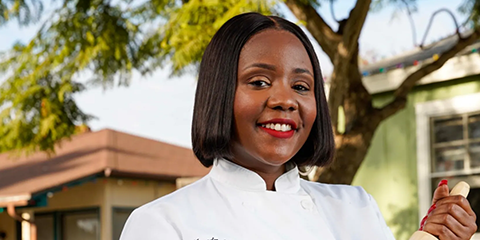
During the COVID-19 pandemic, Mercedes Tiggs, MSW ’12, was living in a one-room apartment with her dog, experiencing significant anxiety and depression.
“I was very fortunate to bring myself out of that rut by coming up with weekly activities in the kitchen,” Tiggs said.
She found planning meals and cooking to be therapeutic, and reasoned that if it helped her it may also help others. So, Tiggs fused her passion for mental health with her passion for cooking to create a nontraditional therapy intervention.
-
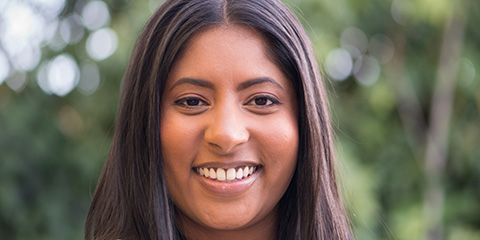
At the tender age of six, Shobana Powell, DSW ’20, decided to be a light amidst the darkness in the world, and to build community. Nestled in her grandmother’s lap, she heard countless inspiring stories of how her mother, grandparents and many others in her family and the Tamil community survived the Sri Lankan civil war in the 1980s. Her family later emigrated to the United States, where Powell was born.
At age 12, while learning about human rights around the world and civil rights across the U.S., she suddenly realized something about herself.
-
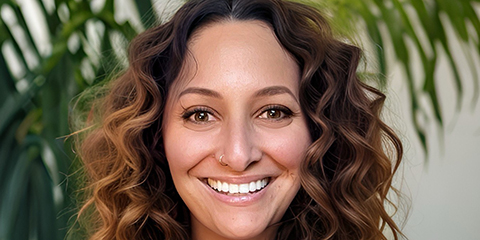
The San Diego Business Journal recently recognized Kiley Dunne Lizama, DSW '20, for her inclusive, innovative therapeutic work and advocacy.
-
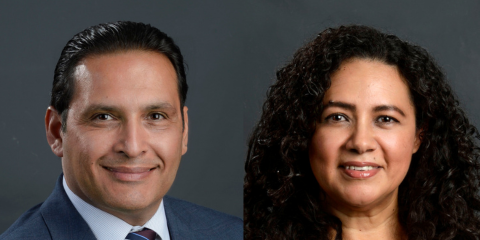
Rosemary Alamo and Rick Ornelas, associate teaching professors of practicum education at the USC Suzanne Dworak-Peck School of Social Work, received appointment to a new advisory board for the Los Angeles Metro Transition Team for the development of a Transit Community Public Safety Department (TCPSD). L.A.
-

Sara Kintzle, research professor at the USC Suzanne Dworak-Peck School of Social Work, has been appointed to the National Academies of Sciences, Engineering, and Medicine’s Committee on the Ass
-
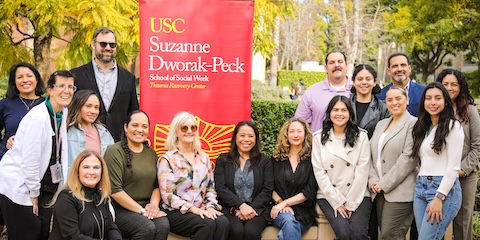
The National Human Trafficking Hotline receives over 10,000 reports of human trafficking annually, involving over 16,000 victims within the United States. This contradicts a common misconception that human trafficking is primarily a crisis experienced outside of the U.S. or that only immigrant populations are impacted.
-

Six professors of the USC Suzanne Dworak-Peck School of Social Work are recognized among the top 2% of scientists in the world for 2023 in a study by Elsevier and Stanford University. The ranking considers 22 scientific fields and 174 subfields. Based on the bibliometric information contained in the Scopus database, it represents approximately 100,000 scientific researchers from a pool of more than 8 million globally.
The school’s faculty named for 2023 are:
-
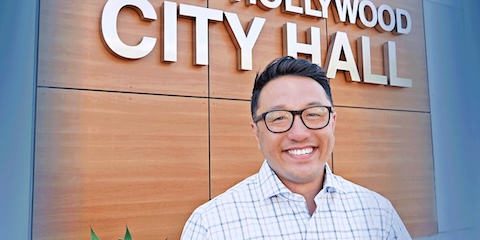
On November 5, 2024, Danny Hang, MSW ’11, the son of refugees from the Vietnam War who grew up in the San Gabriel Valley of Southern California, won his first election to public office. As a new member of the West Hollywood City Council, he is proud to represent the Asian American Pacific Islander (AAPI) community as one of the only members of color. The inspiration to mount a political campaign, Hang says, began with his educational experience at the USC Suzanne Dworak-Peck School of Social Work.
-
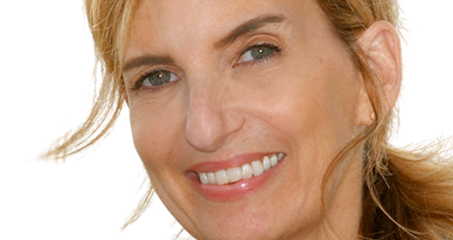
Susan Hess, associate teaching professor of practicum education at the USC Suzanne Dworak-Peck School of Social Work, has been appointed by the Los Angeles County District Attorney’s Office to the first-ever Women’s Advisory Board.
-
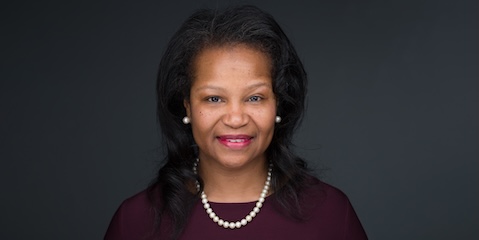
Tracie Kirkland, associate teaching professor in the Department of Nursing at the USC Suzanne Dworak-Peck School of Social Work, has received the most prestigious recognition in the nursing profession, selection as a Fellow of the American Academy of Nursing. The 2024 cohort of distinguished inductees were honored at the annual Health Policy Conference: Courageous Transformations Towards an Equitable Future in Washington, D.C.